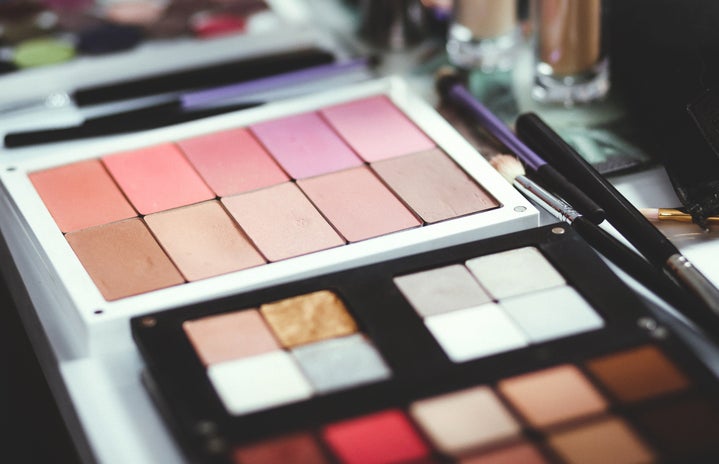If you’ve ever perused through the skincare section of your local convenience store or makeup shop, you’ll know serums at their surface-level—there is one vitamin C serum here that looks nice, and one vitamin E and tree oil serum that catches your attention.
There is such a wide variety of vitamins and oils that it may get overwhelming—from vitamins A, B, C, D, E, and jojoba oil, tree oil, rosehip oil, and black castor oil—the options are seemingly endless. Here is a look into which serum combinations are best for the problems you want to solve:
- Dark Spots and Acne Scars
-
Tea Tree Oil: this oil has the ability to prevent and quickly heal a blemish or wound, rather than a scar fading itself. It rids your skin of bacteria, leading to faster healing. And faster healing leads to a less likely development of a dark spot.
Lavender Oil: lavender helps calm irritation and fight inflammation. This helps dark spots and acne scars by settling the raised part of a blemish and helping the skin repair faster.
Vitamin C: this vitamin is one of the best-known brightening products in the world. Its use allows for fading of dark spots without altering the normal skin pigmentation.
Vitamin E: vitamin E is known as an antioxidant and its rejuvenating properties. The antioxidant properties of the vitamin helps repair damaged skin cells, helping with ridding your skin of blemishes.
- Hydration
-
Electrolytes: We are all given electrolytes with water when we’re dehydrated. Similarly, giving electrolytes to your skin boosts hydration to the max by increasing water absorption.
Pumpkin Seed Oil: this oil is superpowered; it is rich in vitamin E, zinc, omega 3- and 6- fatty acids and antioxidants. This means is great at retaining moisture and maintaining a youthful appearance, as well as improving skin tone, helping wounds heal more quickly, fighting acne and encouraging skin renewal.
Marula Oil: this oil is great for reducing redness and hydrating dry and irritated skin. It is also rich in omega fatty acids, which have hydrating and anti-aging properties. It also protects your skin from ultraviolet rays from the sun, and pollution.
Jojoba Oil: jojoba has anti-inflammatory properties that help with chafing and chapping, reducing redness caused by drying, and keeping the skin calm and comfortable. It also helps with eczema and rosacea, as well as promoting skin repair and damage control.
- Brightening
-
Vitamin C: yet again, vitamin C makes the list. This superpowered vitamin helps repair damage from sun exposure and collagen loss by encouraging cell turnover and regeneration. The result? Bright, glowing skin.
Vitamin B9 (Folic Acid): this vitamin is important for cell production and tissue growth, much like vitamin C. This ensures healthy, radiant skin, as well as helping with detoxing the body and reducing the frequency of breakouts and acne.
Rosehip Oil: this oil is rich in vitamin C, and it helps with tightening your pores and brightening your skin. It is also a natural exfoliator, which helps reduce dullness and increase brightness!
Acai Oil: acai is not only just a superfood great for consumption, but also for absorbing into your skin. It is best suited for mature, dry, damaged, or problem skin. It nourishes and protects the skin from moisture loss and minimizes the appearance of wrinkles, revealing a more radiant complexion.
Hopefully this list has helped you in narrowing your choices of skin serums; there are often too many choices for the casual browser and basic skincare enthusiast. For all of these oils and vitamins, buying serums, gels, and even creams will give you great results. Remember, apply and leave to sit on your face overnight then—voila! Watch you skin glow from within!



